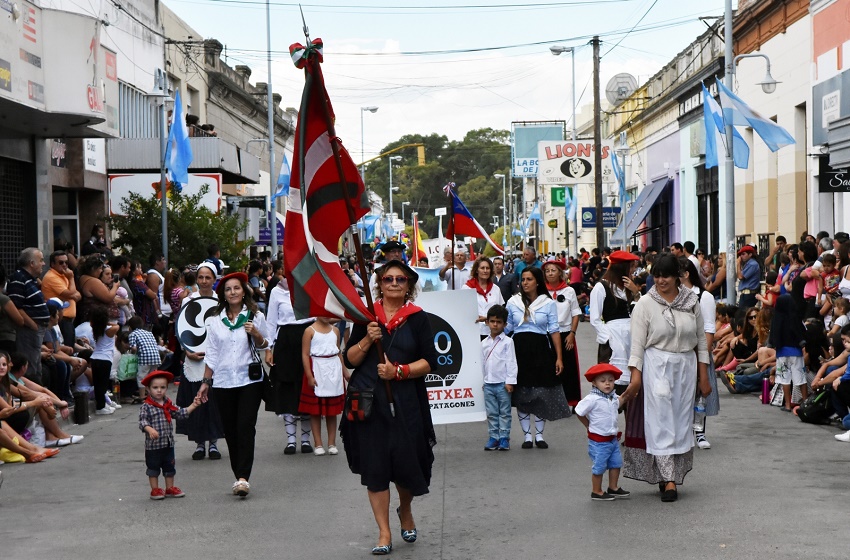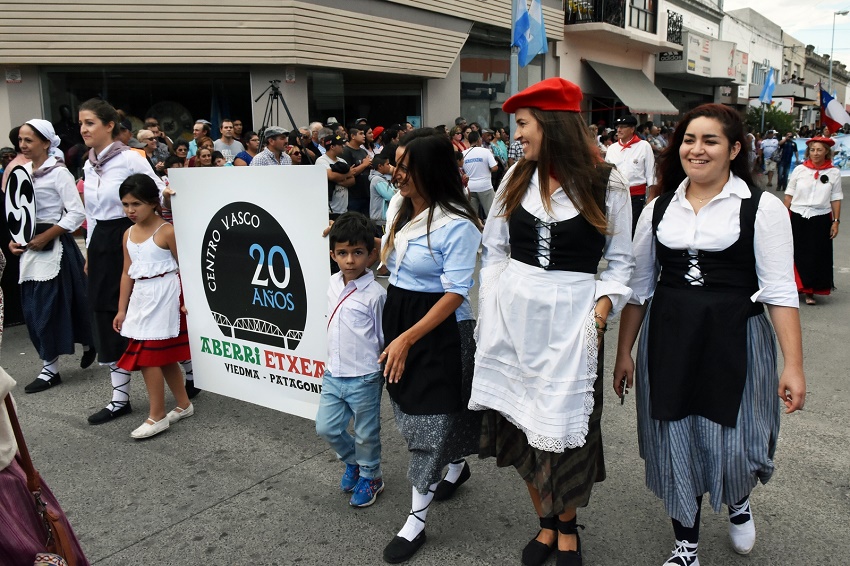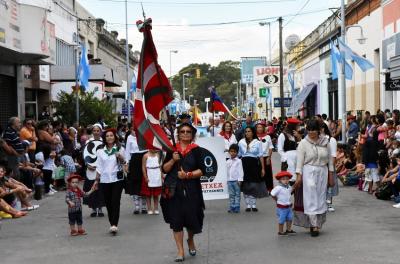As is tradition, the Aberri Etxea Basque Club, which brings together Basque communities in Viedma and Carmen de Patagones (limit between the Argentine provinces of Buenos Aires and Rio Negro-Patagonia), participated in the parade of the Patagonian Sovereignty Festival, organized by the city of Carmen de Patagones. Basque club members donned typical costumes and waved Ikurriñas for the large crowd.
Carmen de Patagones, Argentina. The Patagonian Sovereignty Festival was held March 3-7, and included the presence of artists, communities, institutions and a large audience. The local Euskal Etxea, has already made representing the Basque community at this important event a tradition, was part of the main festival parade with Ikurriñas and typical costumes.
Rocio Basterra, Basque teacher at the Euskal Etxea told EuskalKultura.com about the importance of this event for the region: “The county of Viedma-Patagones, was the first settlement in Patagonia and served as the governor’s headquarters for several years. In 1827, the citizens of the region fought with what they had against the Brazilian offensive that attacked with the full intention of taking possession of Patagonia. The natural characteristics of the area, the river and the climate, well-known by its inhabitants, were key in the victory since the Brazilians, even if more sophisticated, couldn’t withstand the temperatures or the strong currents.”
“That is why every March 7th we celebrate the Patagonian Sovereignty Festival, with the participation of groups and communities form both towns. In our case, the Basque club celebrated its 20th anniversary last November, and so we carried a sign with our 20th anniversary logo on it in the parade. We are very proud to participate in the parade, and also proud to have shared these 20 years with this community, Basterra said.
2017 Activities
The Euskal Etxea in Videma and Patagones provides their communities a large program of events to come and delve into the Basque culture. This year won’t be an exception and the various activities will begin in March. The board and teachers are working on putting together the annual program that will include Basque and dance classes for adults, dance and Euskera workshops for txikis, mus, film and gastronomy. Basque and Argentine community festivities will also be added to the list.









 Send to a friend
Send to a friend Add comment
Add comment









